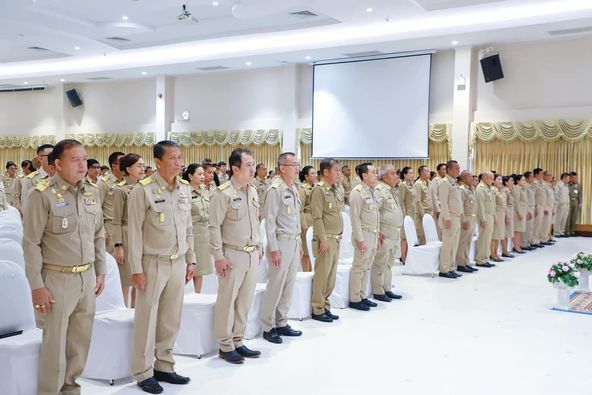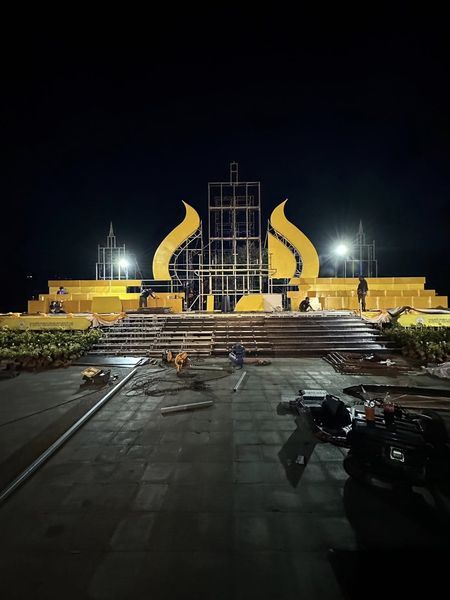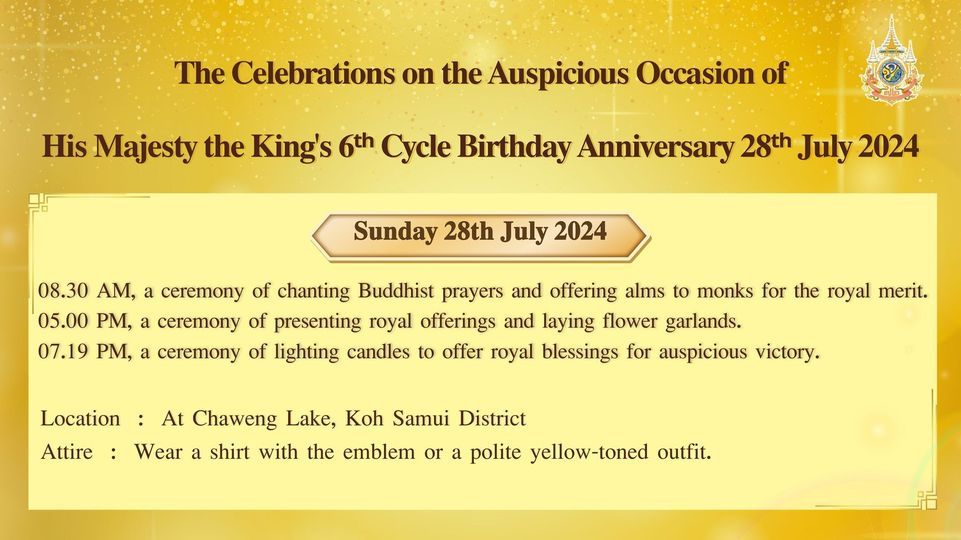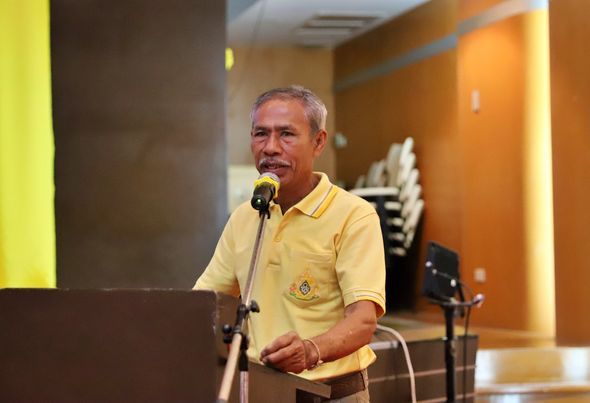Celebrating Thai Local Administration Day and honoring King Chulalongkorn’s vision of decentralization at the Surat Thani Provincial Hall. Reflecting on how this legacy has shaped Thailand’s democratic fabric today. #ThaiLocalAdministrationDay #KingChulalongkorn #LocalGovernance 🇹🇭
A Tribute to the Beginnings of Local Governance
In the early hours on the 18th of March 2024, the atmosphere at the Surat Thani Provincial Hall was one of solemn respect and historical remembrance. Key figures, such as Mr. Jakkarin Promkoh, Vice President of the Ko Samui Municipal Council, gathered with fellow council members and Ko Samui Municipality officials. Their purpose? To honor a pivotal moment in Thailand’s administrative history.
King Chulalongkorn’s Vision of Decentralization
It was a day to cast minds back to an era defined by the visionary leadership of King Chulalongkorn, Rama V. On this very day in 1905, a royal decree transformed the Tha Chalom Subdistrict of Samut Sakhon Province. This area was granted the status of Sukhaphiban, a sanitary district, signaling a newer, democratic dawn for the Thai people.
A Legacy Carved in Tradition
March 18 is not merely a date on the calendar. It is etched in history as the start of a governance revolution where the voices of local citizens began to find a foothold in their communities. The day’s events unfurled with the ceremonious laying of fresh flower wreaths—a gesture steeped in reverence—and the recitation of a royal tribute, a poignant reminder of the monarchy’s enduring legacy.
In the Words of the Minister of Interior
As petals adorned the hall, another highlight was the reading of the Minister of Interior’s statement. Although the contents of this address were not detailed in the source, its inclusion in the ceremony underscores the enduring importance of the ministry’s role in fostering robust local administration.
Modern Implications of a Centuries-Old Reform
What began over a century ago has rippled through time to influence the democratic fabric of Thailand’s governance today. Thai Local Administration Day serves as an annual reflection on how far local governance has come, shaping the democratic tenets that continue to support and empower communities across the nation.
Frequently Asked Questions
What is Thai Local Administration Day and why is it significant?
Thai Local Administration Day is a commemorative event that celebrates the historical moment when King Chulalongkorn, Rama V, implemented his vision of decentralization in Thailand. On March 18, 1905, the Tha Chalom Subdistrict of Samut Sakhon Province was granted the status of Sukhaphiban, marking the beginning of local governance and a new era for Thai democracy. This day is significant as it reflects on how King Chulalongkorn’s reforms have shaped the current democratic fabric of the nation, allowing the voices of local citizens to influence their communities.
Who were the key participants in the Thai Local Administration Day ceremony at Surat Thani Provincial Hall?
The ceremony at Surat Thani Provincial Hall saw the gathering of important local figures, including Mr. Jakkarin Promkoh, the Vice President of the Ko Samui Municipal Council, along with fellow council members and officials from the Ko Samui Municipality. They came together to honor Thailand’s administrative history and the momentous shift towards local governance initiated by King Chulalongkorn.
How is Thai Local Administration Day celebrated, and what does it symbolize for the Thai people today?
Thai Local Administration Day is celebrated with acts of solemn respect and historical remembrance. The celebration includes laying fresh flower wreaths and reciting a royal tribute, symbolizing the reverence for the monarchy’s legacy in introducing local governance. The reading of the Minister of Interior’s statement is also a significant part of the ceremony, emphasizing the ministry’s role in maintaining strong local administration. This day serves as an annual reflection on the progress of local governance and its impact on the democratic principles that support and empower Thai communities today.




